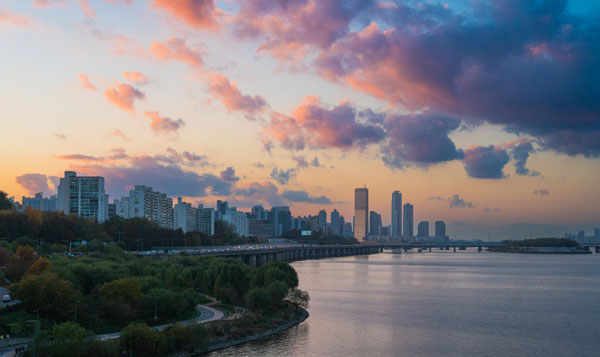The Han River has the 43rd highest contamination density in the world

[Han River. Photo Credit to Pexels]
According to research, the Han River is ranked to be the 43rd highest drug contaminated out of 137 countries in the world.
This pollution is due to many drugs not being completely absorbed by the human body, which also does not entirely get filtered by wastewater treatment plants.
International research teams, including a team from York University in the UK, researched the true state of 2022’s drug contamination of the world’s major rivers.
According to the research, the Han River has the 43rd highest contamination density, out of 137 countries in the world.
Other countries such as Lahore of Pakistan, La Paz of Bolivia, and Addis Ababa of Ethiopia had the highest contamination level.
Further, the Kai Tak River in Hong Kong Special Administrative Region (HKSAR) had the most drugs present in the water sample.
On the other hand, Yanomami native village of Venezuela and Skógafoss of Iceland had no drugs found in their water sample.
According to the research team, the contamination level increased in places where wastewater treatment is ineffective and where drugs are being manufactured.
Advanced countries with efficient wastewater treatment had lower drug detection levels.
In the case of Seoul, even with the sewerage distribution rate being 100%, high population density, and high drug output rate seem to be the cause of drugs not being filtered by wastewater treatment plants and flowing into the river.
The most found drug in the Han River was the diabetes drug metformin.
Other drugs used in daily life such as analgesics, antibiotics, and antihistamines were also found.
Experts say that the drug contamination of the river will negatively affect the ecosystem, such as by affecting the breeding and behaviors of animals such as fish living in the river.
It can especially help bacteria to develop resistance to them.
Choi Kyungho, a professor at Seoul National University who led the process of collecting water samples from the Han River, stated that actions such as carelessly getting rid of unused drugs should be stopped by arranging a drug collection system and reinforcing the efforts of preventing drug contamination.
Currently, South Korea does not have a systemized drug collection system.
Many people discard drugs into normal trash cans or sometimes even remove them by throwing them away in the toilet or drain.
However, in the case of the United States, a system of “a drug take back program” is used in order to retrieve drugs or safely remove at houses.
Also, drugs that are safe to get rid of by trash cans or drains are indicated on the packaging.
In South Korea however, the best way to get rid of drugs is by using medicine drop-off boxes at pharmacies.
Most pharmacies provide medicine drop-off boxes located in them.
If people have expired drugs or medications they no longer use at the pharmacy, they can dispose of those drugs by sending them to the public health center.
There are different disposal methods,depending on the types of drugs or medications.
In the case of tablets, you simply have to dispose of them by removing the packaging and putting them into the medicine drop-off box.
In the case of powdered medicine, you dispose of them without removing the packaging.
For liquid medicine or syrup, you dispose of them by gathering all the drugs into a single bottle and sealing the bottle.
Drugs that are in special containers such as ointments, eye drops, spray, or an asthma inhaler, can just simply be disposed of by discharging them into an exclusive recycling bin, instead of emptying the material.

- Catrina Cho / Grade 10
- Saint Paul Preparatory Seoul

![THE HERALD STUDENT REPORTERS [US]](/assets/images/logo_student_us.png)
![THE HERALD STUDENT REPORTERS [Canada]](/assets/images/logo_student_ca.png)
